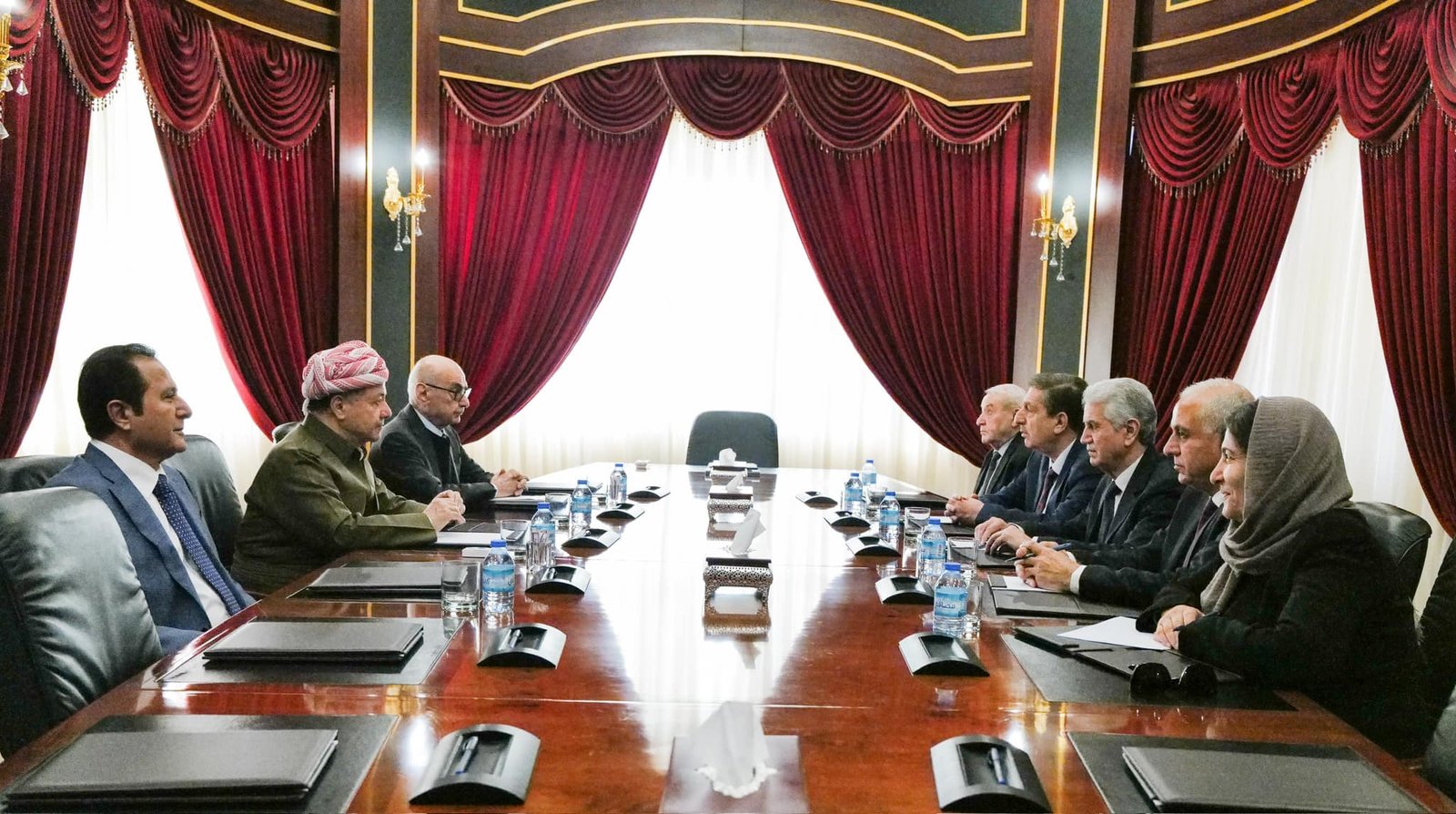ENKS maneuvers between Damascus and the SDF to boost its leverage

Two days after the Syrian Kurdish National Council (ENKS) announced it had been invited to meet with Syrian interim president Ahmed al-Sharaa, the group revealed it had also presented a project to join the PYD-led Autonomous Administration in northeast Syria.
Context: The ENKS presented the initiative to SDF commander Mazloum Abdi, centering on creating a “Kurdish Framework” and securing ENKS participation within the Autonomous Administration. The proposal consists of 15 Syrian national points and 11 Kurdish national points.
Analysis: The timing of this initiative suggests the ENKS is attempting to balance the backlash from segments of its base over its decision to accept a unilateral invitation from Al-Sharaa while throwing the ball back into the SDF’s court. This isn’t the first time the ENKS has discussed joining the governance structure in northeast Syria, but its demands for a 50/50 power-sharing arrangement and the return of its armed wing, Roj Peshmerga—recruited from Syrian Kurdish refugee camps in the Kurdistan Region—have consistently been rejected by the SDF.
ENKS likely knows its initiative will once again be dismissed, but the move serves multiple purposes: portraying the PYD as the side unwilling to pursue Kurdish unity, justifying its outreach to al-Sharaa, and positioning itself as a potential asset to the new Syrian government. ENKS is firmly backed by KDP leader Masoud Barzani in the Kurdistan Region of Iraq, with its core policies shaped in Erbil rather than Ankara, despite rival accusations to the contrary. While there are some internal disagreements within ENKS on how to approach the PYD, all major decisions, whether agreements with the PYD, Damascus, or meetings with Ankara, are filtered through the KDP.
ENKS has justified its meeting with al-Sharaa by pointing out that the SDF has also negotiated unilaterally with Damascus. But the comparison is misleading: the SDF, as the military force and governing authority in northeast Syria, signed an agreement with Damascus in March. ENKS, by contrast, is a political bloc that had previously committed to a joint delegation approach in April during a Kurdish unity conference; joining the Autonomous Administration was never part of that framework. Notably, ENKS itself acknowledges that al-Sharaa had repeatedly refused to meet them in the past but has now extended an invitation, likely to exploit divisions and weaken the SDF. ENKS, however, may leverage this engagement to enhance its political weight.
Adding to the intrigue, just two weeks before al-Sharaa’s invitation, Turkish Foreign Minister Hakan Fidan publicly stated that ENKS-affiliated groups had approached Ankara for support. This raises the possibility that Ankara is quietly encouraging al-Sharaa’s outreach to ENKS.
This development signals a new phase in the political chess game unfolding in northeast Syria, with Damascus and likely Ankara using the ENKS as a tactical card against the SDF in negotiations. The ENKS, aware of this dynamic, is leveraging its position to secure influence as Syria transitions toward new governance and power-sharing structures.









